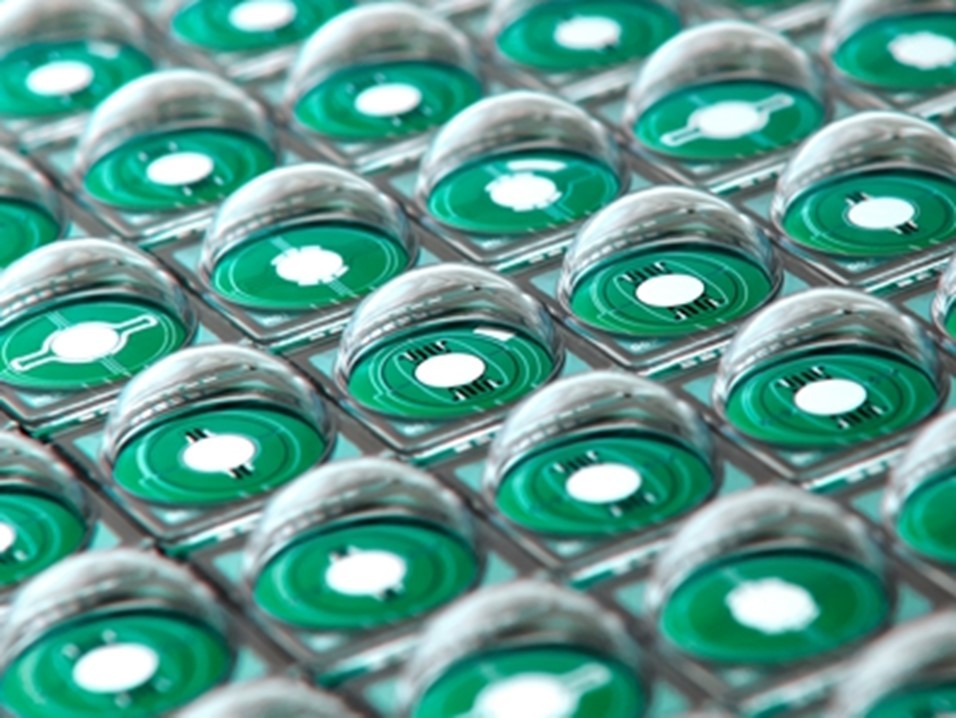In the development of autonomous driving vehicles, LIDAR (Light Detection Ranging) is an indispensable key technology. LIDAR systems use optically based distance measurements to very accurately capture their surroundings and generate a precise image representation for the user. The high-resolution measurement data thus support the self-driving vehicle.
MEMS scanner for wide-angle LIDAR systems
Motivation: from large and expensive LIDAR systems to small and cost-effective ones.
Until now, LIDAR systems have been large and expensive, making them difficult to use in vehicles. That's why Fraunhofer researchers worked to develop a small and inexpensive LIDAR system whose manufacturing costs would not stand in the way of its commercialization in the automotive industry. Such a system consists of a laser, a scanner that emits the laser beams, and a trapping optic that reads the reflected laser beams. The individual components communicate with each other via suitable electronic interfaces.
Different components - one system
Under the umbrella of the Forschungsfabrik Mikroelektronik Deutschland (FMD), Fraunhofer scientists from various institutes worked with partner companies to develop the individual components for a high-resolution wide-angle lidar system.
The MEMS scanner - a central component of the LIDAR system
Fraunhofer ISIT developed the MEMS scanners (MEMS: Micro Electro Mechanical Systems) for this project. The development of these devices was a great challenge for the scientists; for example, they optimized the drives of the scanners to allow a large deflection angle of the MEMS mirror and a field of view of 180°.
Additionally, the design of the devices has to be optimized to avoid mechanical stress at these large angles, thus increasing their lifetime and reliability. The mechanical behavior of MEMS mirrors under shock or vibration was also studied in detail to ensure good mechanical stability in real application scenarios. Last but not least, dome-shaped glass covers - a groundbreaking, innovative development from ISIT were mounted on the MEMS mirrors. On the one hand, these glass domes protect the devices from environmental influences, on the other hand, the glass domes ensure a vacuum environment and the good optical quality of the devices.
One of the world's first and leading MEMS-based LIDAR systems
The result is a robust, MEMS scanner that features a particularly large scanning angle, good mechanical robustness and stable durability. The complete LIDAR system is the world's first MEMS-based LIDAR system and is attracting great interest in the industry because this system can be used for both automotive and industrial applications.
 Fraunhofer Institute for Silicon Technology
Fraunhofer Institute for Silicon Technology
